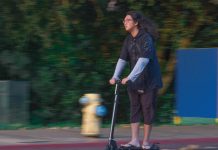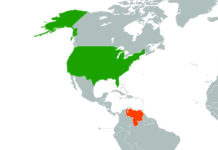
On Feb. 19, Protector, a new rideshare app that offers private security, was launched in Los Angeles and New York. Protector allows its users to select security personnel with a variety of experience from Emergency Services Unit members to SWAT and even SEAL teams. These “protectors” are equipped with firearms and come with a customizable experience where riders can select the vehicles included in their motorcade, the number of guards in their detail and their desired dress code for security.
Some individuals took to X, formerly known as Twitter, to describe the Protector as “Uber with guns” — an apt tagline that highlights the appeal and danger of this application. While the idea of private security on demand can be exciting, the lack of clear details regarding Protector raises concerns about affordability, regulation and perceptions of safety.
Despite Protector’s claim of being “a revolutionary personal security app” that “makes private security available to the general public,” the statement does not translate to reality. The drastic cost of this service ensures that only the wealthiest individuals can afford protectors. The set starting rate of the application is $100 an hour with a mandatory five hour booking.

In areas like West Hollywood where there is a distinct demand for private security, a single Cadillac Escalade with one protector was estimated to cost around $1,000 for a five hour period. Although there are available options to split costs amidst all passengers, the mandatory booking period compared with the flat cost makes this service unaffordable for the majority of Los Angeles residents. It’s apparent that Protector is not focused on enhancing public safety. The main purpose of this program is to cater to elites or self-proclaimed celebrities who feel deserving of armed security personnel.
During its launch, Protector invited social media influencers from TikTok and consulting companies to try out their services, clearly identifying its likely customers. The majority of the ratings individuals provided of their experience were positive with only one or two individuals briefly commenting on price.
This highlights that cost isn’t the primary concern for the targeted population of these services. While there is nothing inherently wrong with offering free trials in the promotion of a service, Protector advertising itself as accessible to the average individual is misleading.
Going beyond the cost, Protector also raises questions regarding regulations and safety precautions in place. Unlike Uber and Lyft which conducts background checks on drivers and prevents them from carrying licensed or unlicensed firearms, Protector has provided no information on how “protectors” are hired and trained. There is an inherent lack of transparency when it comes to what protocols are in place to prevent firearm misuse or liability issues in instances where firearms are misused by the protector, driver or passenger.
Protector has also been vague about the kind of private security services that would be offered. While physical private security appears to be the primary method, there is no additional information provided on the possibility of using video surveillance, alarm systems or even cybersecurity protections during the ride. Additionally, because the exact duties and limitations of these guards are not transparent, riders have no way of knowing how they are trained to handle various threats. Without this clarity, the presence of security could introduce more risk than protection.
Increasing access to private security as the primary method for individuals to feel safe in large cities can lead to the erosion of trust in the public government. Los Angeles already has a crime rate that is 61 percent greater when compared to other cities in California. By shifting focus toward private security, there is an increased risk of socio-economically disadvantaged individuals from being left out. In 2022, a survey found that three in four Los Angeles residents felt that their neighborhoods were safer with the presence of the Los Angeles Police Department (LAPD). By solely looking toward private security, these individuals’ safety is forgotten.
Safety should be seen as a public good that is accessible to all individuals — not just a luxury for those who can afford it. Protector is promoting a type of security that feeds into fear-driven narratives demanding additional security, which ultimately reduces trust in publicly funded services and law enforcement agencies.
Los Angeles doesn’t need ultra-exclusive private security to address crime rates and resident concerns about safety. The city needs investment in public safety measures that serve the entire population, not just the rich who can afford their own police force.





